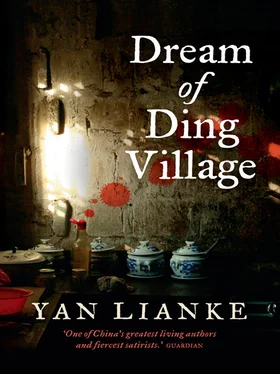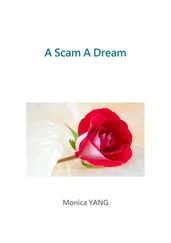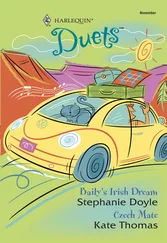The night was as endless as a path across the plain. Pale, milky moonlight seeped through the curtains; crickets chirped outside the window. It was stifling. The pain made Uncle feel as if his soul were on fire, a heap of burning coals. Like an iron forge, hot enough to smelt metal. It was impossible to find a comfortable position. First he knelt, shrimp-like, in the middle of the bed, with his backside sticking up into the air. Then he tumbled sideways on to the sheets and lay in a foetal position, like a dead shrimp curled up into a ball. Or he tried lying prostrate, hugging his knees to his chest, like a dead shrimp lying on its back. Like a shrimp that had been dead for some time. It was the only position that took away some of the pain. Some of the pain, but not all of it. Not enough to stop him from crying out.
‘God, I can’t stand it any more. Lingling, I’m dying. Mummy, give me something to stop the pain.’
He screamed and cried and clutched the sheets until they were wadded up into a ball. He was drenched in perspiration, sticking to the sheets. Lingling tried to wipe away his sweat, keeping up a steady stream of conversation, a collection of things she knew he loved to hear. Anything to try to ease his pain; anything that might get through to him. If he didn’t like what he was hearing, he would beat the pillow with his fists and cry: ‘The pain is killing me, and you say that to me?’
And Lingling would mop up his sweat with a damp towel and change the subject.
‘Daddy, don’t get mad, but I want to ask you something.’
Uncle turned his head to look at her. Sweat glistened on his forehead.
‘Who would you guess Tingting’s new boyfriend is, back in her hometown?’
‘Come on, Mummy, aren’t I in enough pain already?’
Lingling smiled. ‘Well, no matter who he is, there’s no way they’re happier than us.’
Uncle’s gaze softened.
‘I’ll bet Tingting doesn’t call her man Daddy, like I do. And I’m sure he’s never once called her Mummy.
‘I’m your real wife now, Daddy. But even before that, I was your wife anytime you wanted. In and out of the school, out in the wheat fields or in our little house at the threshing ground. Anytime, day or night, whenever you wanted. All you had to do was ask, and I never once told you no. I always gave you what you wanted.
‘If you wanted something sweet, I made you something sweet. If you wanted something salty, I made you something salty. I never let you near the stove, and never made you get your hands wet doing laundry. I’ve been good to you, haven’t I?’
Before he could answer, Lingling said: ‘Yes, I did all those things as your wife.’
It was as if she had not expected him to answer, as if she had posed the question to herself. ‘But when you wanted me to be your mummy, I hugged you and rocked you, put my breast in your mouth and patted you on the back, like putting a little baby to sleep. And when you wanted me to be your daughter, I called you Daddy at least ten times a day, just like you were my real dad. I didn’t tell you, but one day I counted how many times I called you Daddy, and it was at least fifty times. But you only called me Mummy once that day, and that was just because you wanted me to wash your feet. But that was enough for me. I was happy to wash your feet and empty out the water afterwards. And once you even woke me up in the middle of the night to give you a bath. So you tell me, Liang, was I really good to you, or was it all fake?’
Lingling stared at Uncle as if he’d wronged her somehow.
‘You tell me, Daddy. . was I really good to you, or was I faking it?’
Uncle knew she’d been good to him. He thought he’d been good to her as well, but from the way she talked, he could tell that he must have done something to upset her, or to hurt her in some way. He couldn’t think what it might be. Or maybe it was several things. All he could do was try to look apologetic, like a man facing an angry wife, a complaining mother or a grumbling sister.
Lingling, wearing only shorts and a thin cotton gown, sat on the edge of the bed, holding Uncle’s hand. She spread his fingers apart, pinching them one by one as if she were counting. She seemed almost unaware of what she was doing. As she gazed at him, colour flooded into her cheeks. Although she had grown very thin, a rosy glow was thick upon her skin. She looked like a bashful young girl, sitting close to a boy for the very first time, sharing her first intimate conversation. The lights were low, giving the room a soft, gentle glow. Earlier that evening, mosquitoes had buzzed around the room, but now they were perched, invisible, listening to the sound of Lingling’s voice. Their absence made the room feel soft and quiet.
A gentle stillness, warm and soft, had settled over them.
Uncle was no longer huddled, foetal or curled up like a shrimp. He lay on his side, legs outstretched, head resting on his pillow, not complaining about the pain or about the room being too hot, but listening to Lingling talk. He was like a child listening to his mother tell a story, or a boy hearing tales about things he had done long ago and forgotten.
‘I’ve been so good to you, Daddy. So why do you keep saying you’re not going to make it? Why do you keep telling me you’re not going to survive? Of course you’re going to survive. Think about all the people who’ve died from the fever. It’s always the ones with liver problems who die first, then the ones with bad lungs or stomach trouble. If all you have is a fever, it takes a long time to die, and with bone pain, it takes even longer. Your lungs and stomach are fine, and I’ve never heard you complain about your liver. So what makes you think you’re going to die soon?
‘I know you’re in pain, but everyone says bone pain takes the longest to kill you. So when you yell that you’re dying, does that mean you don’t want to live? I mean, isn’t that just asking for death, hurrying it along? You shouldn’t call death to your bedside. Why would you do that? Is it because I haven’t been good enough, is that why you want to leave me so soon? Or do you just think that since you have the fever, living is pointless?
‘Just look at me, Daddy. The minute we got our marriage licences, the fever I’d had for two weeks disappeared. It went away, and now I’m as good as new. And do you know why? Because I love you. I love being married to you. It’s like we’re on our honeymoon. I mean, we just got our licences, so this is our first day of really being married. We haven’t even slept together yet, at least not officially. So how can you talk to me about dying?
‘Liang, don’t you love me any more? Because if you do, Daddy, if you still care about me like you used to, please stop talking about dying. Stop saying you’re not going to make it. Just keep thinking about me, and calling me your mummy, and letting me take care of you. I’ll do anything you want — feed you and dress you, and even help you in bed.
‘Now that we’re married, we’re officially a family. I’ve called you Daddy so many times, but I still haven’t had the chance to call my own father-in-law Dad. Professor Ding is my dad now, too. Tomorrow, I want to go to the school and invite him to live with us. I can take care of you both. I’ll cook and clean and wash your clothes, and when I’ve got my strength back, I’ll knit sweaters and woollen pants for both of you. You’ve never seen how well I can knit. Back home, all the neighbours used to come and ask me to make them sweaters.’
Lingling noticed that Uncle’s eyes were closed.
‘Did you doze off, Daddy?’
‘My eyelids feel heavy.’
‘Is the pain any better?’
‘Yes, it’s like it’s gone. Doesn’t hurt at all.’
‘Then close your eyes again and go to sleep, and everything will be better in the morning. Tomorrow we’ll have a lie-in, maybe stay in bed all day. We’ll sleep until the sun is shining on our backs, and then we’ll have breakfast for lunch.’
Читать дальше












